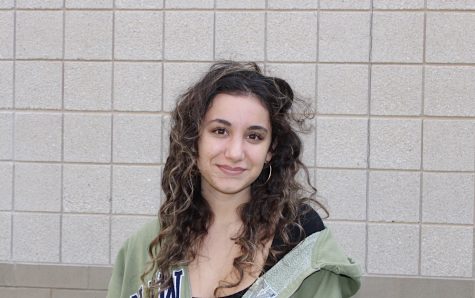Love is Hard to Watch
Love is Blind, a new reality show on Netflix hosted by Nick and Vanessa Lachey, tries to explore whether couples can fall in love based on personality alone, without being distracted by appearances or the real world. However, the premise is faux-deep, even for reality TV standards. Love Is Blind is undeniably binge-able, but its version of romance often comes off more toxic than aspirational, and it is crucial to examine the problematic aspects that it perpetuates regarding love and relationships.
The premise of the show is simple: over a 10 day period, contestants enter “pods” (cozy little rooms with couches and a shared wall), talk to their prospective spouses without seeing each other, and have their interactions filmed. The eventual goal of the show is engagement after a mere four weeks, and, somehow, most contestants do leave the pods claiming to have found “the one.” While many of the couples are initially, or so they claim, “deeply in love,” their relationships inevitably do not survive very long in the real world. Many of the pairs realize that their connection just “wasn’t there” once they actually see each other in person.
As can be expected simply from the synopsis, Love is Blind undoubtedly earns its place as one of the most cringeworthy and awkward reality shows out there. The contestants on the show claim to be searching for love, but their desperation often overshadows any genuine emotions they might feel. The conversations between the pairs are stilted and forced, and the show is filled with uncomfortable moments that are difficult to watch.
This lack of authenticity is perhaps the aspect of the show which bothers me the most. Love is Blind claims to be unscripted, but I find it hard to believe that multiple contestants want to whip out their guitars and belt out love songs to people they just met. It is clear that the producers often manipulate the narrative to create conflict; from the carefully curated couples to the dramatic pauses and cliffhangers, the show is a masterclass in creating artificial tension. The contestants are also very superficial, often asking each other about their height and weight, which challenges the entire point of the show. The idea of falling in love with someone for simply their character seems romantic, but the relationships that are forged are shallow, lacking any true depth or meaningful connection. Love is Blind fails to address the fact that relationships are complex. While the idea of relationships requiring more than just a shared physical attraction is sweet, the show forgets about important issues such as compatibility, communication, and trust – things which cannot be formed with a wall in between.
Overall, the format of the show is completely ridiculous, as it encourages the contestants to rush into life-altering decisions (marriage) without fully knowing the person they are committing themselves to. This is a recipe for disaster, and it is concerning that the producers are promoting this (especially with many viewers being quite young) as an acceptable way to find love.
I feel that what makes Love is Blind so entertaining is that it magnifies the negative aspects of dating — desperation, miscommunication, anxiety, arguments — to such an uncomfortable and outsized degree that regular, real-life dating feels like a relief. While Love is Blind is entertaining to some, it is important to remember that the show is not a realistic representation of how people should find love. As viewers, we should demand more responsible content that promotes healthy relationships and genuine connections.

Shireen is a junior in the IB program here at Harriton. She is very grateful that she has earned an editorial position for the Banner this year, and she...



